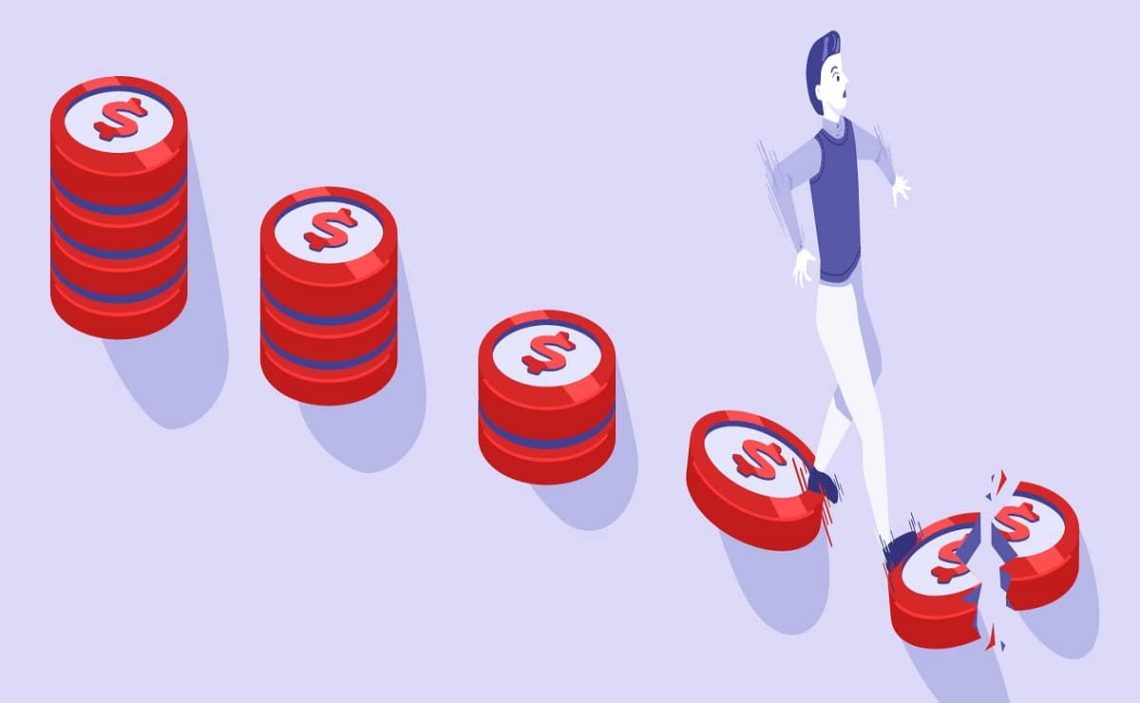Bankruptcies are paid by the person filing for bankruptcy; both court fees and attorney’s fees are the filer’s responsibility. The person who decides to file for bankruptcy is responsible for covering all outstanding debts up to that time.
But discharged debts are not anyone’s responsibility; they are considered losses by creditors. Filing for bankruptcy is the escape route for many business owners to eliminate existing debt and start from scratch.
What happens after filing for bankruptcy?
There are two types of bankruptcies filed in Chapter 7 and Chapter 13, each has its benefits, but in some cases, debt and property are handled differently.
The court immediately issues an automatic stay order when you file for bankruptcy. This measure stops creditor calls, judgments, and wage garnishments.
But depending on your case, creditors can still collect support payments and continue to pursue criminal cases. Although, temporarily, it is an effective measure to stop foreclosure, eviction, or repossession actions.
Evictions will stop upon filing bankruptcy, but you will be able to stay in place temporarily. However, if there is already an eviction judgment against you, you cannot avoid it by filing bankruptcy.
With the implementation of Chapter 7, you will not be able to do anything to avoid foreclosure and repossession. If you fail to bring your account current as soon as the stay is lifted, you will lose the mortgaged house or car.
If Chapter 13 is used in such a case, you will be given time to catch up on the outstanding payments and to be able to discuss the assets. Again, this depends on the claim filed and the orders against you before the bankruptcy notice.
Fees and payments involved in bankruptcy
There are no upfront costs for filing bankruptcy; the first consultation will be with a licensed insolvency trustee and is completely free of charge. The trustee will evaluate your financial situation and recommend whether to file a consumer proposal or a no-fee bankruptcy.
When you decide to proceed and file according to the trustee’s recommendation, it is time to take responsibility for the costs. For bankruptcy filing, there are filing fees.
There are no specific prices because it depends on the attorney hired and whether you are eligible for the filing fee waiver assigned by the court. Some fees are:
- The filing fee that is determined when you make the bankruptcy filing
- Credit counseling fees are essential to proceed with the petition. These are low-cost services, and if you cannot afford them, you can talk to the agency to ask for a waiver
- Payment of the debtor education course is mandatory and has low prices
Financial costs you must pay when you file for bankruptcy
You must cover the administrative fees and expenses; you must also pay the insolvency administrator for the advice given. The process is known as the base contribution fee; when it is the first filing, the minimum price ranges from $1,800, and you can pay it in 9 monthly installments.
Depending on the state you live in and the status of your case changes, the base contribution fee. You also have to pay the excess income cost; it is filed when you exceed the excess income limit by more than $200.
You can find out the annual excess income limit by going to the offices of the Superintendency of Bankruptcy; the price is updated every year. Your family group influences this cost; the more members, the higher the excess income threshold.
The final cost you must pay is the cost of assets; it is calculated according to your help; a trustee will supervise the sale of your assets and is responsible for using the funds obtained to pay the creditors.
You will also have personal costs when you file for bankruptcy
You will not only have monetary expenses, but you should also be prepared to invest a lot of time; during the filing, you need to complete a lot of paperwork and send documentation to your trustee.
It would help if you were prepared to see the bankruptcy on your Equifax credit report; it is maintained for six years from the date you discharge your debt. It is also reflected on the TransUnion report according to your territory.
When you file bankruptcy, you will not be able to access credit lines while you remain in default; once you are discharged, recovering your credit will be complex. You may not be eligible for credit, or you may have to pay higher than normal interest rates.
Finally, before opting for this solution to eliminate debts, study all the possibilities available. By declaring bankruptcy, you may eventually end up paying much more.


